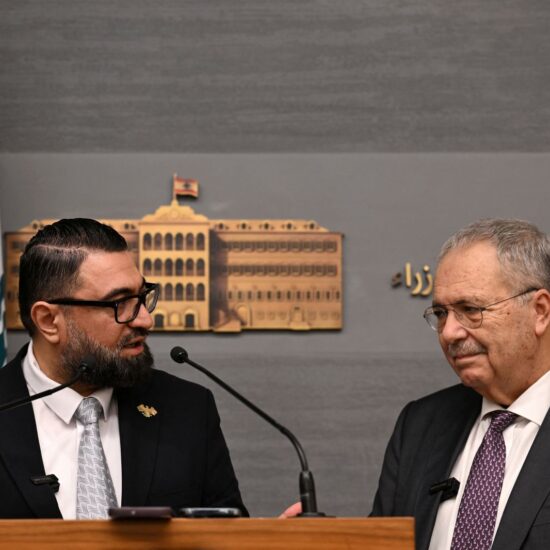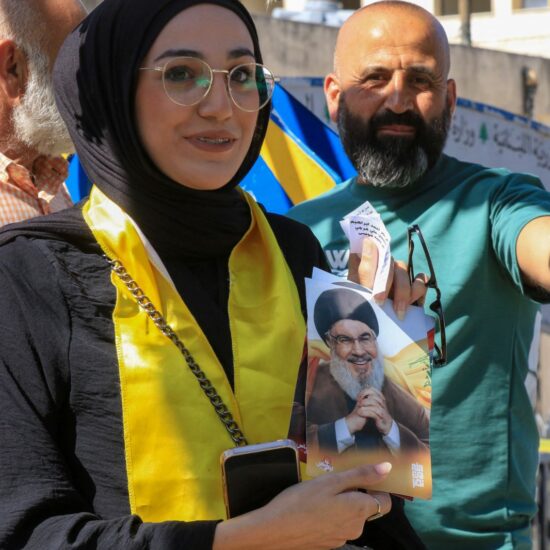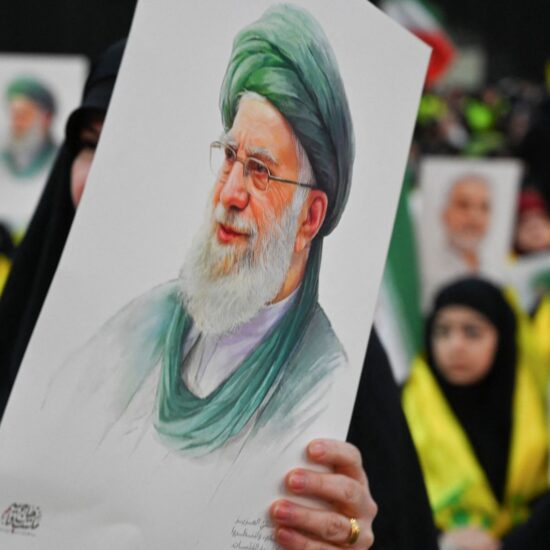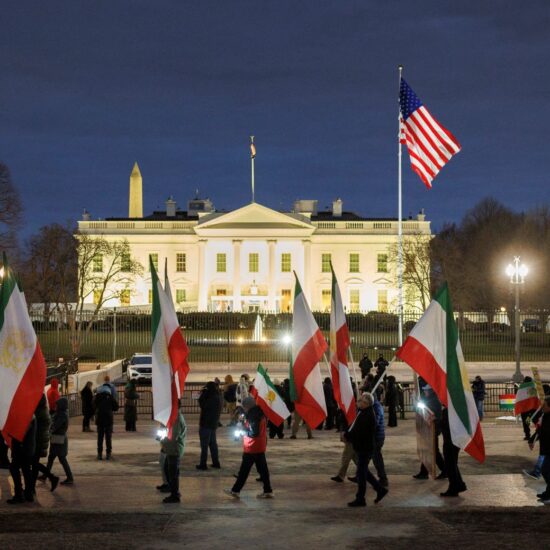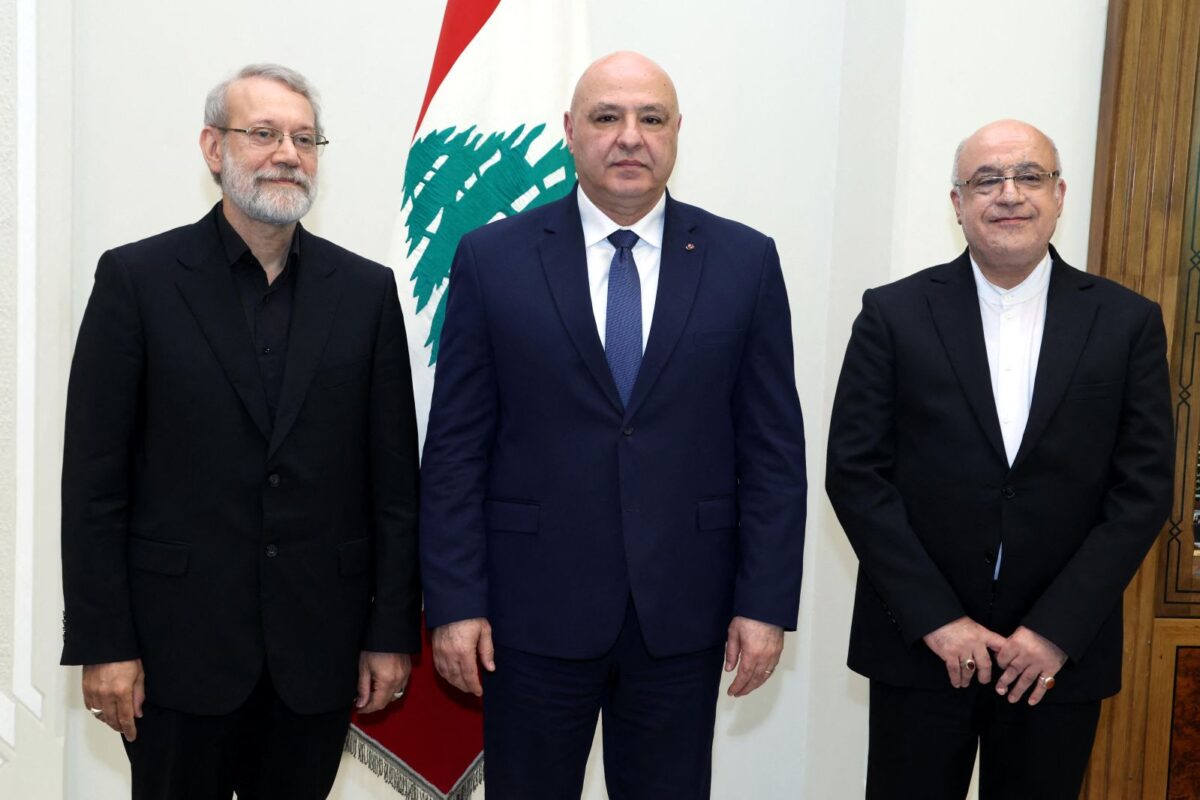
Lebanon’s government openly rejected foreign interference, reflecting a wider shift as foreign influence is under scrutiny. President Joseph Aoun and Prime Minister Nawaf Salam issued blunt remarks, firmly dismissing outside interference in Lebanon’s affairs and openly criticizing Iran’s recent objections to Beirut’s disarmament plan for Hezbollah
Senior Iranian official, Ali Larijani, was received at Beirut Rafik Hariri airport, not by high-ranking representatives of the Lebanese state but by members of Iran’s ally Hezbollah. Larijani was among Iranian officials who, in recent days, opposed the Lebanese government’s decision to disarm Hezbollah.
The plan mandates the Lebanese army to develop and implement the disarmament framework, a move that Hezbollah has denounced as a grave sin.
In Beirut, he used diplomatic language, but he did not back down. Larijani denied Iranian interference, shifting blame to Washington for “imposing” disarmament and urged Beirut not to “confuse friends with enemies”. In this context, friends are Iran and Hezbollah, and enemies are Israel.
His visit was welcomed by thousands of Hezbollah supporters who lined the airport road, chanting “Death to America”.
The message of this is clear: any attempt to weaken Hezbollah will be mobilized with street power.
Hezbollah is still a political force in the country and is resisting the Lebanese state’s decision to fully disarm it, despite being militarily weakened by Israel.
“Foreign countries should not direct demand to Lebanon, the Lebanese people make their own decisions, and we respect any decision the Lebanese government makes in cooperation with the factions.”’ Larijani was referring to Hezbollah, whose supporters greeted him at the airport.
The new leadership in Lebanon told the Iranian official that there is no turning back on its decision.
No party can carry weapons and seek foreign support as leverage, was what President Joseph Aoun said. He also called Iran’s statements on plans to disarm Hezbollah unconstructive.
Some believe that Larajanis’ regional tour is part of an effort by Iran, if not to revive, at least to send a message that its so-called axis of resistance still exists despite suffering setbacks.
US envoy Tom Barrack is expected back in Lebanon for his fourth visit in recent weeks to a country which has long been a battleground for outside powers.
A message from Tehran?
Larijani’s visit is seen as an indication that Tehran is not giving up its influence here and as a message that Iran can’t be sidelined in any decision regarding Hezbollah.
It is clear that Iran is resuming its efforts to stay present in the Middle East. Before Beirut, Larijani’s visit to Baghdad confirmed that Iran has an urgency to reinvigorate its battered so-called axis of resistance against the US-Israeli new orders in the region.
Disarming Hezbollah is not only a regional dynamic, but it’s also an internal Lebanese dynamic.
The timing of his visit is also telling as it came just before the visit of US envoy Thomas Barrack and State Department spokesperson Morgan Ortagus. Tehran ensured that it had already moved to assert its influence whilst ensuring that its presence was felt before Washington could present its own agenda.
Aoun’s firm stance that only the Lebanese state can wield arms sends a clear message: Lebanon is asserting its independence.
The group is not just facing military pressure. The international community wants the Lebanese state to go after its financial wing by clamping down on the cash-based economy.
For Lebanon, regaining sovereignty is now just a foreign demand, but it will allow for an Israeli withdrawal and economic revival while avoiding international isolation and possible escalation in Israeli strikes.
Aoun also stressed that Lebanon’s relationship with Iran must be conducted through the state rather than through individual factions, signalling a shift from previous years when Tehran often dealt directly with Hezbollah
These declarations come at a time when Hezbollah’s role in the country is under scrutiny, especially with the Lebanese cabinet’s recent approval of a US-backed plan aimed at disarming the group by the end of the year.
This is the first time that a government in Lebanon is attempting to disarm Hezbollah since the end of Lebanon’s civil war, more than three decades ago. Hezbollah’s initial response to the government’s disarmament plan was to send a few dozen supporters on motorcycles to take over the streets of the city, but it has now moved beyond public statements, threatening “there will be no life” in Lebanon if the state confronts it.
Larijani denied any allegations of Iranian interference, instead accusing the US of imposing its agenda on Lebanon. He emphasised that any disarmament must come from within Lebanon, not be dictated by foreign powers.
President Aoun tried to navigate this dilemma with cautious language, emphasising national sovereignty and rejecting foreign interference. His words were designed to appeal to both sides, but with the disarmament deadline approaching, it remains uncertain how long this careful balancing can be maintained.
“The decisions made today will shape our country’s future. We really hope that this time Lebanon asserts control over its destiny, as it’s time to stop being influenced by external forces,” Rana Malaeb, a geography student, told NOW.
For Rana, Iran cannot keep asserting its regional dominance and acting for its own benefit through the use of Hezbollah in Lebanon to bargain under the language of “resistance”, which is directly affecting the nation as a whole.
Rodayna Raydan is a Lebanese-British journalist. You can follow her on Twitter @Rodayna_462
The views in this story reflect those of the author alone and do not necessarily reflect the beliefs of NOW.



